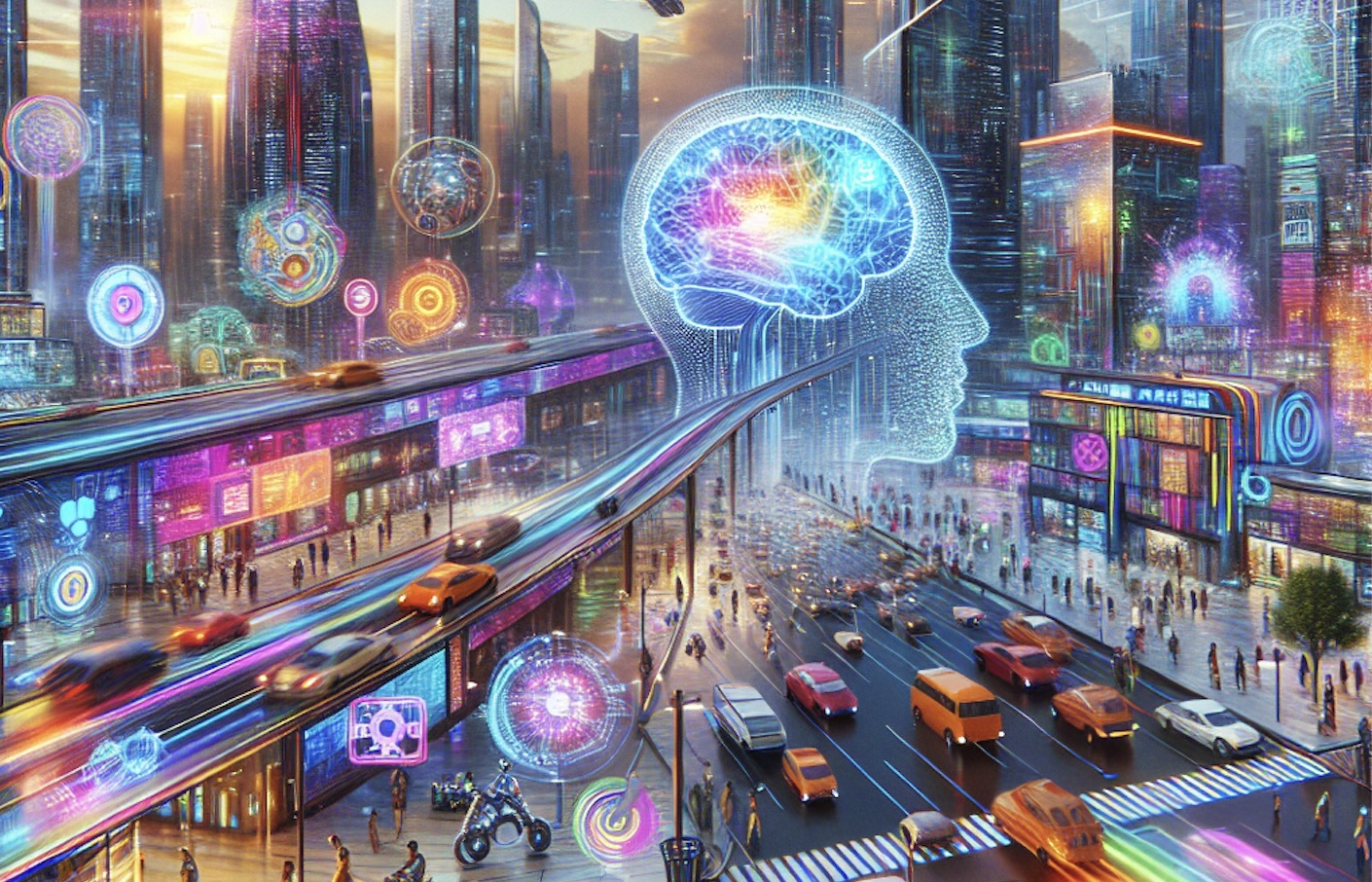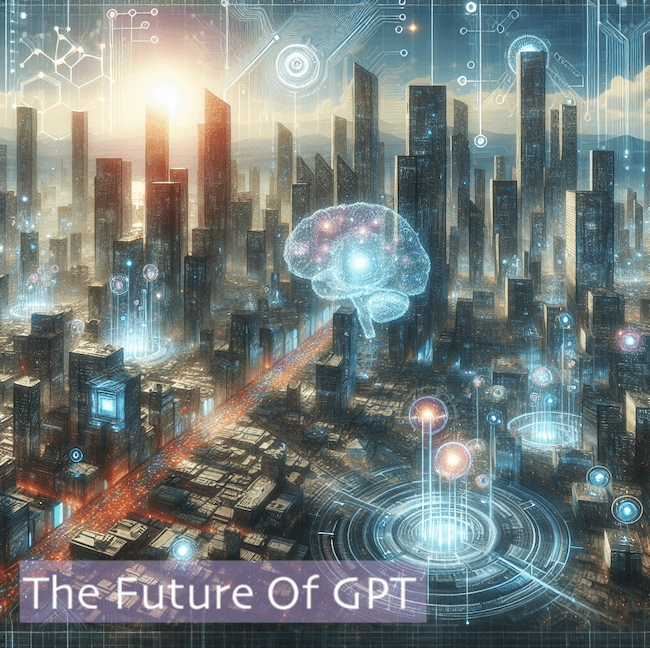The Future Of GPT Transforming The Landscape Of Artificial Intelligence

The advent of Generative Pre-trained Transformers (GPT) has revolutionized artificial intelligence, especially in natural language processing. The future of GPT promises significant advancements and broader applications across various industries. This analysis explores potential developments, opportunities, challenges, and ethical considerations associated with the future of GPT.
1. Advancements in GPT Technology
1.1 Enhanced Model Capabilities
Greater Language Proficiency: Future GPT models will exhibit a deeper understanding of context, generating more coherent and contextually relevant responses.
Increased Multimodal Capabilities: Integration of text, image, and audio inputs will provide more holistic outputs.
Personalization: Enhanced ability to tailor responses based on individual user preferences and behaviors.
1.2 Integration with Other Technologies
Internet of Things (IoT): GPT models will interact with and control smart devices, offering more seamless user experiences.
Augmented Reality (AR) and Virtual Reality (VR): Enhancing AR and VR environments with dynamic, real-time language processing and generation.

2. Applications Across Industries
2.1 Healthcare
Medical Research: Assisting in literature reviews, hypothesis generation, and data analysis.
Patient Interaction: Improving communication through chatbots and virtual assistants capable of handling complex medical queries.
2.2 Education
Personalized Learning: Creating customized learning experiences tailored to individual student needs and styles.
Content Creation: Assisting educators in developing educational materials, lesson plans, and assessments.
2.3 Business and Customer Service
Customer Support: Automating and enhancing customer service with accurate and empathetic responses.
Market Analysis: Analyzing market trends and consumer sentiment through natural language processing of social media and other data sources.
2.4 Creative Industries
Content Generation: Producing high-quality written content, scripts, and music lyrics.
Idea Brainstorming: Assisting creatives in generating ideas and overcoming writer’s block.
3. Ethical and Societal Considerations
3.1 Bias and Fairness
Mitigating Bias: Future models must address inherent biases in training data and implement robust bias detection mechanisms.
Transparency: Ensuring decision-making processes of GPT models are transparent and understandable.
3.2 Privacy and Security
Data Protection: Implementing stringent data protection measures to safeguard user information.
Secure Interactions: Ensuring secure and free-from-malicious-activities interactions with GPT models.
3.3 Ethical Use
Responsible AI: Developing guidelines and frameworks to prevent misuse in generating harmful or misleading content.
Human Oversight: Maintaining human oversight in applications where critical decisions are made.
4. Challenges and Limitations
4.1 Computational Resources
Sustainability: Addressing the environmental impact of training large-scale models with efficient algorithms and sustainable computing practices.
4.2 Accessibility
Cost: Reducing the cost barriers associated with deploying and using GPT models.
Technical Expertise: Simplifying the implementation process to accommodate users with varying technical expertise.
5. Future Research Directions
5.1 Continual Learning
Adaptability: Enabling GPT models to learn and adapt continuously from new data without requiring complete retraining.
Longevity: Extending the lifespan of models by keeping them updated with the latest information and trends.
5.2 Cross-Linguistic and Cross-Cultural Understanding
Global Reach: Creating models that effectively serve diverse linguistic and cultural contexts.
Cultural Sensitivity: Ensuring models are sensitive to cultural nuances and avoid perpetuating stereotypes.
In summary
The future of GPT holds tremendous promise, with potential to revolutionize various industries and improve daily life. However, it also presents significant challenges and ethical considerations that must be addressed to ensure responsible and equitable development. Ongoing research, collaboration, and thoughtful regulation will be essential to harness GPT’s full potential while mitigating its risks. By focusing on these areas, we can look forward to a future where GPT and similar technologies positively contribute to society, driving innovation and improving quality of life.
Recent Posts
- Sustainable Tech Solutions: Highlight Eco-friendly Technologies And Their Impact On Climate Change.Eco-friendly technologies are becoming a game-changer across various industries. With climate change at the forefront of global concerns, there’s a critical push towards finding sustainable solutions that can help mitigate… Read more: Sustainable Tech Solutions: Highlight Eco-friendly Technologies And Their Impact On Climate Change.
- Emerging Technologies Review: Focus On Innovations Like AI, Quantum Computing, And Blockchain In 2025.Technology in 2025 looks much like a fast-evolving landscape, Where previously unimaginable inventions are becoming part of everyday life. We’re at a pivotal moment where fields like AI, quantum computing,… Read more: Emerging Technologies Review: Focus On Innovations Like AI, Quantum Computing, And Blockchain In 2025.
- Gaming Tech News And TrendsGaming technology, wow, it’s been one wild ride. From pixelated graphics on bulky consoles to the sleek, lightning-fast systems we have today, it’s all about constant evolution. It all kicked… Read more: Gaming Tech News And Trends
- 4K Ultra-wide Monitor Reviews And Comparisons4K ultra-wide monitors have been making quite a buzz lately, And for good reasons. These screens offer a wider field of view while maintaining a sharp 4K resolution. Imagine having… Read more: 4K Ultra-wide Monitor Reviews And Comparisons
- High-end Gaming Laptops 4K Ultra-wide Monitors RGB Mechanical KeyboardHigh-end gaming laptops have been taking the gaming world by storm. It’s fascinating to see how portable gaming technology has advanced over the years, making it possible for gamers to… Read more: High-end Gaming Laptops 4K Ultra-wide Monitors RGB Mechanical Keyboard
- Music Forever@MusicForever_allstars MusicForever the Retro Music often has a cheerful, upbeat sound and is associated with nostalgia for a particular time period. In a nutshell, oldies are popular songs from the… Read more: Music Forever
Top websites that may interest you :
Revolutionary Hubs
The Ultimate Guide to Affiliate Marketing
Wealthy nexus marketing
Empower Entrepreneurs
Fulfilling lifestyle Better life comfort
Improve your daily for a better life comfort.
Following us on social media links :
Affiliate Disclosure
Technology and Progress














Leave a Reply